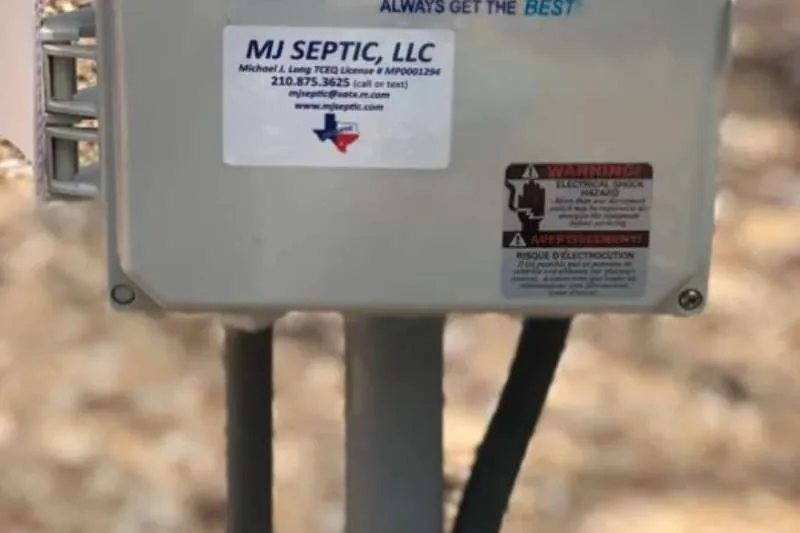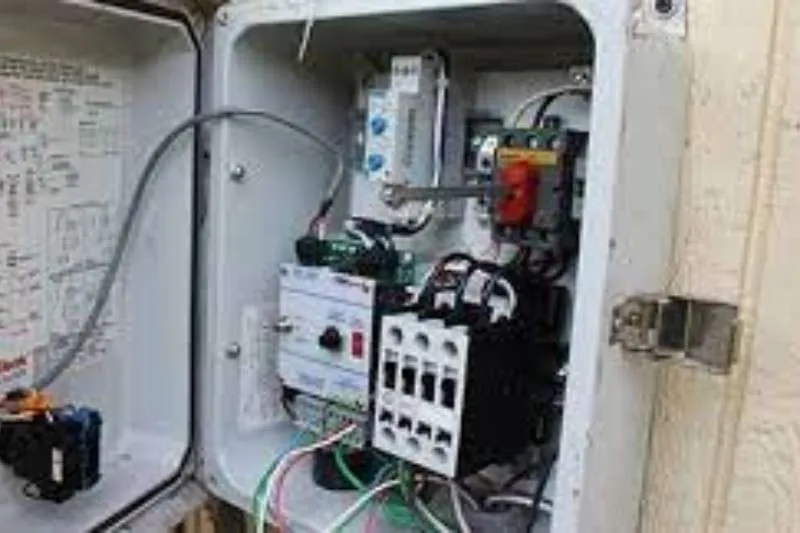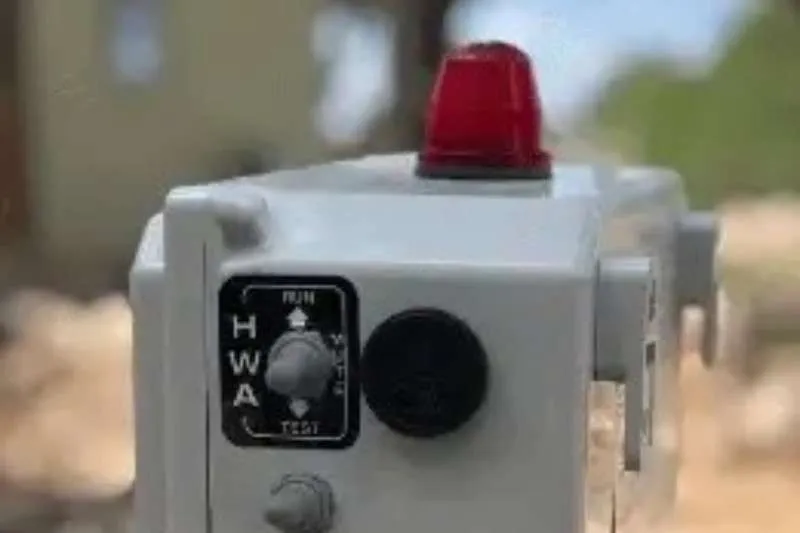When your septic tank alarm goes off, it can be an extremely daunting experience. Not only will you have to deal with the loud noise it’s making, but you also have to tackle the issue of why the alarm will go off in the first place. Knowing what a septic tank alarm means and how to handle them is essential for homeowners who rely on their system for wastewater management.
In this blog post, we look at what those alarms mean and some steps to take if your septic system has gone into alarm mode. Read on to learn more about these important topics.
Introduction to septic tank alarms
Septic tank alarms have become increasingly important in modern septic systems. As a homeowner, understanding the purpose of these alarms and how to properly interpret their signals is essential to maintaining a healthy and efficient septic system.
The purpose of a septic tank alarm is to offer early warning of potential problems with your septic system, such as a blocked or backed-up tank, a broken pipe, or an overflowed drain field. The alarm can save you time and money in repairs and replacements by alerting you to these problems before they become major issues.
Several common types of septic tank alarms are available on the market today. The most basic type is a float switch installed inside the pump tank or septic tank, which will alarm when the water level in the pump tank reaches a certain point. This type of alarm is useful for detecting blocked tanks or pipes and can help prevent damage to the entire system.
Another type of septic tank alarm is a high-water alarm which monitors any water entering the septic system. This type of alarm is designed to detect an overflow or excessive filling of excess water overflow the tank and can be used to indicate problems with the drains in your home. Lastly, a pressure switch alarm can be installed on drain fields to detect high water levels, which could indicate that the field is saturated or the pump cycles are not functioning properly.
Understanding the purpose of septic tank alarms and the types available can help ensure your septic system works properly and efficiently. Regular inspections and maintenance are also essential for keeping the septic systems with pumps in their system in good working order. If an alarm sounds, don’t hesitate to contact a professional plumber or septic specialist for assistance.
Understanding septic tank alarm triggers.
Septic tank alarms are designed to alert homeowners when there’s an issue with their septic system. They work by sending a signal to a switch on the alarm panel, usually located in the home near the main electrical panel, which will then sound an audible alarm. Understanding what triggers these alarms and how to best respond is important.
High Water Level Alarms
A high water level alarm indicates that the water in your septic tank has reached a higher-than-normal level. This could mean the septic system run its pumps are not working correctly or have too much water usage and wastewater entering the tank simultaneously. If you notice a high water alarm, it is important to investigate the cause of the alarm and take action if necessary. This could include checking for blockages in pipes or drains, replacing faulty pumps, or reducing water usage until the problem is resolved.
Pump Failure Alarms

A pump failure alarm indicates that a septic system’s pumps are malfunctioning. This could be due to several issues, including power outages, broken pipes, or malfunctioning pumps. If you experience a pump failure alarm, it is important to contact a professional plumber right away and have the problem fixed as soon as possible.
Responding to a septic tank alarm
When your septic tank alarm goes off, taking immediate action is important. Depending on the type of septic alarm used, you can take a few steps to determine what is causing it and address the issue quickly. If the first alarm signal is coming from an in-tank float system, check if the float is stuck, and if so, move it to get the alarm to stop. If you have an outdoor alarm system, check for blockages in the drain field or any other connections leading from your tank.
Once you’ve determined and addressed the cause of your septic tank alarm, be sure to call a professional for help if the issue persists or is more complex. A professional can help you identify and address any issues that may have caused the alarm to go off, such as a broken pump, a clog in your pipes, or a malfunctioning septic tank system. They can also advise on preventive measures to take with your system going forward, such as regularly checking for blockages or doing regular maintenance to keep everything running smoothly.
It is important to respond quickly and appropriately to a septic tank alarm, as the consequences of not doing so can be costly. A malfunctioning septic system could lead to health hazards from sewage contamination, increased costs from expensive repairs, and potential damage to your property. Knowing what to do when your septic alarm goes off and getting professional help can help you avoid these costly issues.
By understanding the meaning of a septic tank alarm, how to respond immediately, and how to identify and address any issues causing it, you can ensure that your septic system stays in good working order for years.
Preventing false alarms and septic system malfunctions
Preventing false alarms and septic system malfunctions is the best way to avoid costly repairs or replacements. Regular septic system inspections and maintenance can help catch potential problems, such as clogs or blockages before they become bigger. Consult a qualified professional if unsure how often your septic tank needs to be inspected and maintained.
Proper water usage and waste disposal habits can also help avoid septic system malfunctions or false alarms. Try to spread out the water used throughout the day, so your septic tank doesn’t get too much water and become overloaded. Avoid flushing anything other than toilet paper down your toilet, and avoid pouring any cooking oil or grease down the drain. This much wastewater can cause major blockages in your septic system.
Finally, if you experience a false alarm or your septic tank appears to be malfunctioning, call a qualified professional for help immediately. An experienced technician can diagnose the problem, fix it, and help you prevent future problems. With the right knowledge and maintenance practices, false alarms or malfunctions should be rare.
Troubleshooting common septic tank alarm issues
If you have recently experienced a septic tank alarm going off, it is important to understand the potential causes and how to troubleshoot them. This article discusses three common reasons for se tank alarms: power outages or electrical issues, cl or blocked pipes, excessive water usage, and faulty alarm components.
Power Outages or Electrical Issues
The first thing to consider when troubleshooting a septic tank alarm is whether there has been a power outage or interruptions in the electricity supply. If the power has gone out and come back on, this could be causing the alarm to sound. It is important to check the electrical connections to the alarm box and ensure everything is secure and properly connected. Additionally, any power surges or fluctuations in the electricity supply could cause a false alarm. If this issue persists, contact an electrician for assistance.
Clogged or Blocked Pipes
If there is a blockage in your septic system, it can cause the alarm to sound. This is because wastewater will not be able to flow properly through the pipes, eventually causing a backup or overflow. To troubleshoot this issue, check all the pipes leading into and out of your septic tank for any blockages or clogs that may have formed. If you find anything, you may be able to clear the clog yourself, or you can contact a professional for assistance.
Faulty Alarm Components
The final commonality of a false septic tank alarm is if any of the components within the septic tank alarm system are faulty or malfunctioning. This could include a bad sensor, corroded wires, or a broken switch. If any of these components are to blame, contacting a professional to repair or replace them is best.
When to call a professional for septic tank alarm issues

When a septic tank alarm is triggered, the first step is determining what it means and why it has gone off. If you can determine the cause of the alarm and take steps to remedy it, then there may be no need for further action. However, if you cannot identify or fix the issue or your alarm continues to sound, it’s important to call a professional for help.
Septic system professionals are trained and certified in installing, maintaining, and repairing septic tanks. They have the necessary tools and knowledge to identify what is causing your septic pump wastewater or tank alarm to go off and can take steps to correct it. This can include anything from fixing a minor issue to replacing an entire septic system.
Before calling a professional, be sure to do some research on the best local companies in your area. Ask friends and family for referrals or look for customer reviews online. It would be best if you also considered hiring a company certified by the National Environmental Health Association (NEHA).
FAQs
What is the purpose of a septic tank alarm?
The purpose of a septic tank alarm is to alert you when there is an issue with standing water in your septic system. The alarm can be triggered by high-standing water levels surrounding or in the tank, pipe blockages, or electrical issues.
What are the common triggers for septic tank alarms?
The most common triggers for septic tank alarms are power outages or electrical issues, clogged or full septic breakers, blocked pipes, and faulty alarm components.
How should I respond if my septic tank alarm goes off?
If your septic tank alarm goes off, the first step is to determine why the alarm is going off. Further intervention may be unnecessary if you can identify and correct the issue yourself. However, if you cannot identify or fix the issue or your septic company alarm continues to sound, call a professional for help.
Can a septic tank alarm indicate a serious problem with my septic system?
Yes, a septic tank alarm can indicate a serious problem with your septic system. If the septic breaker alarm has been triggered multiple times or does not stop sounding, contact a professional for help immediately to prevent further damage and costly repairs.
How can I prevent false alarms or septic system malfunctions?
To help prevent false alarms or septic system malfunctions, check all the pipes leading into and that pump wastewater and out of your septic tank for any blockages or clogs that may have formed. Ensure that your power supply is stable, and contact an electrician if it is not.
Conclusion
If your septic system is placed into alarm mode, it is important to act quickly and systematically. Always be aware of your septic system’s components and specific alarm code, and know where the shutoff valve is so that you may protect yourself and your tank from further damage. As septic tanks are an important part of our lives, it is essential to stay up-to-date on warnings like these so that we can react as soon as possible should a malfunction occur.


